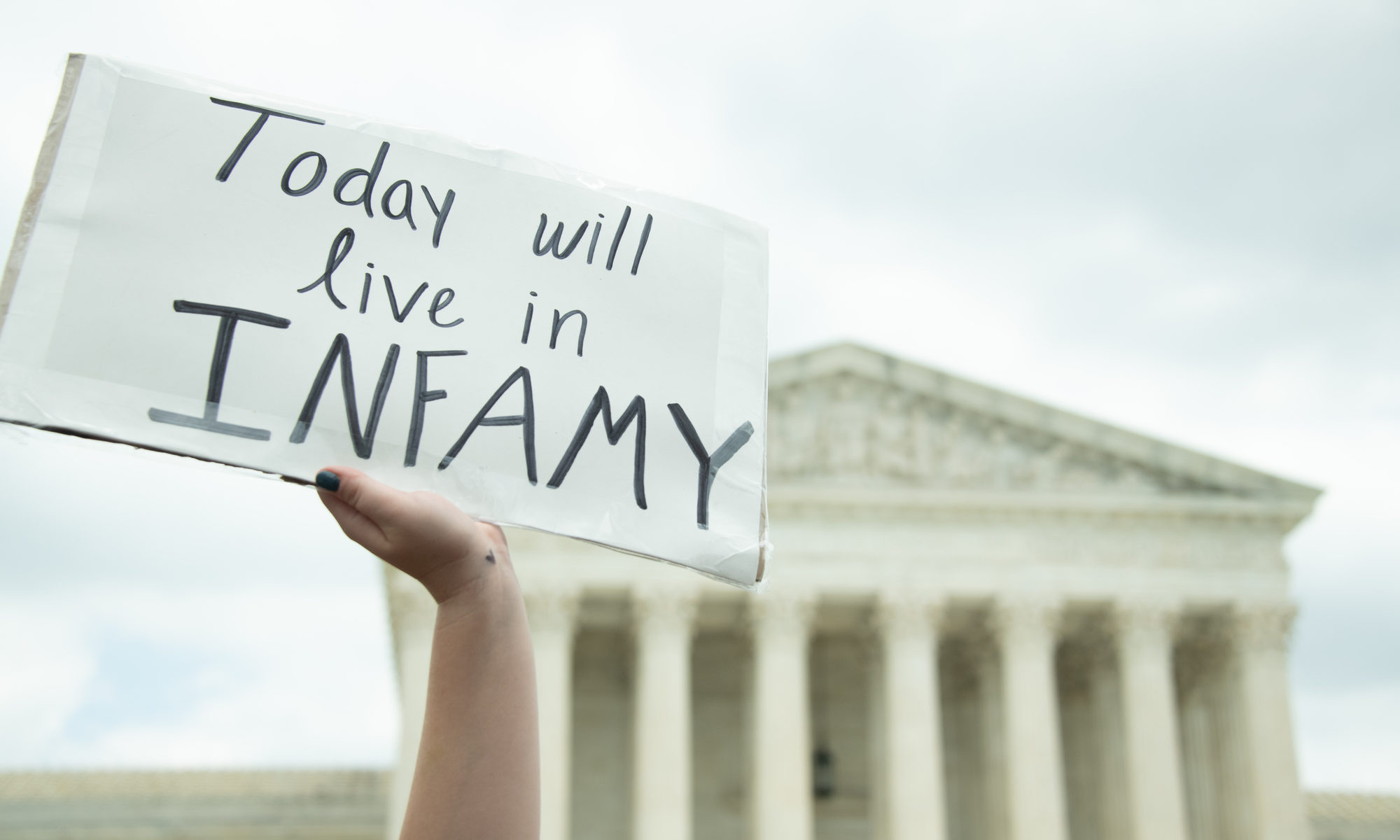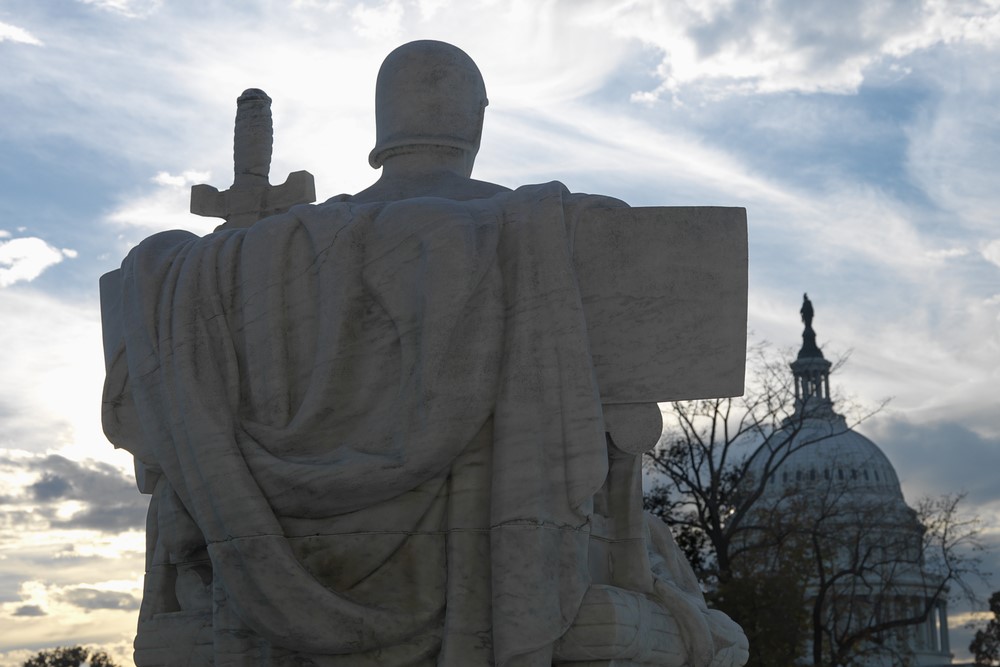Following the overturning of Roe v. Wade, a great deal of media attention has been focused on what comes next. The right to an abortion, granted by the original landmark case, was founded on the basis of a constitutional right to privacy. But it has already been made clear that similar rulings regarding a constitutional right to privacy, such as Griswold v. Connecticut could be at risk of being overturned as well. In addition, the Supreme Court has attracted controversy for several other controversial decisions as well, prompting proposals for how to reform the Court or how to reverse these decisions. But with confidence in the courts falling to historic lows, many such proposals would likely only make the situation worse and undermine confidence in the courts even more.
Perhaps it is time to stop worrying about what policies we want courts to protect and to start thinking about finding broad support for changes in process in the form of constitutional amendments.
The recent decision from the Supreme Court regarding abortion combined with rulings on school prayer, concealed guns, voting rights, and worries about future rulings once again reignite debates about whether and how the Supreme Court should be reformed. The impeachment of justices who some feel misled Congress has been floated, and the topic of court-packing has resurfaced again. The constitution does not specify the number of judges on the Court, so Congress could simply pass legislation creating more positions and then have those positions be filled by left-leaning justices to re-balance the Court. Term limits for Supreme Court justices would mean that there would be more turn over, preventing the Court from becoming too ideologically lopsided.
In addition to proposing reforms to the Courts’ makeup, some have proposed reforms to the powers of the Court. Some now propose that Congress strip the Supreme Court of its jurisdiction for hearing certain kinds of cases, or that legislation could be passed requiring a supermajority of justices to strike down federal laws. It has even been suggested that if a particularly controversial ruling comes from the Court that Congress or the President simply ignore it, under the constitutional theory known as departmentalism which holds that each branch of government may decide on its own how to interpret the Constitution. In addition, there are several proposals to create mechanisms for Congress to override the Court if it wanted to, not unlike Canada’s notwithstanding clause.
While many of these proposals might appease in some areas, they all have problems when it comes to putting them into practice.
After all, abortion rights proponents now find themselves in the same position as anti-abortion advocates did in the 1970s, and it took almost 50 years for them to get what they wanted. Proposals like court-packing simply do not have enough support.
It is important to note that much of the Supreme Court’s power is based on the confidence the public has in it. The Constitution does not prescribe many powers to the Supreme Court, and even its power of judicial review is based on the precedent Marbury v. Madison, and as it has become all too clear that precedents are not set in legal stone. If people do not feel like the Court is impartial, they will be less inclined to heed its pronouncements. While some would like to see justices impeached or the court packed, this would only serve to undermine the confidence in the Court from those on the right, likely prompting retaliatory measures. This would weaken perceptions of impartiality of the Court even more, effectively transforming the Supreme Court into a very exclusive legislature.
Meanwhile, having Congress override the Courts’ decisions risks undermining the commitment to minority rights.
Fundamental protections would become a flimsy thing, being reversed whenever the opposing party comes to power. Limiting the High Court’s jurisdiction risks similar problems, simply offloading the same basic problem to an alternative body that the parties will shape so as to achieve their preferred policy objectives. All these efforts to manipulate the judicial system in order to secure specific political outcomes will only undermine overall public confidence in the Court.
Perhaps an alternative to such a standoff is to stop thinking about desired result we wish courts to deliver and start thinking about broader legal principles to embed in the constitution that could appeal to people on all sides of the spectrum. The legal issue underlying so many contentious issues like Roe v. Wade is the issue of privacy. Abortion opponents charge that because privacy isn’t explicitly established in the Constitution, it isn’t protected. Rather than dealing with legal debates about implied rights, why not amend the Constitution to explicitly include privacy rights? Polls show that a vast majority of Americans are concerned about privacy issues. And with the rise of surveillance capitalism, and of AI accessing vast datasets, there may be room for broad support for proposals to embed some kind of privacy protections in the constitution.
While getting the support needed for constitutional amendments is difficult (the last amendment was ratified in 1992), the increasing importance of privacy to broad segments of American society may create room for bargaining and compromise on these issues by both the left and the right. Recently, constitutional-law David French opined that the Court’s overturning of Roe v. Wade may actually help de-polarize America. Because the pro-life vs. pro-choice debate largely centered around Roe v. Wade, sides had to defend a precedent, not a specific policy. But as French observes,
Is there a hope that you would have something along the lines of a democratic settlement to the issue that makes abortion so much less polarizing in other countries around the world? Europe, for example has long had more restrictive abortion laws than the United States, but the United States couldn’t move to a European settlement because Roe and Casey prohibited that.
Indeed, polls show that Americans have fairly nuanced views when it comes to abortion. Few people would favor an outright ban on the procedure, so it may not be so difficult to imagine a compromise proposal for adding privacy to the Constitution that would not only protect abortion rights, but other rights like access to contraception, gay marriage, and protections from online surveillance. Such a move would not only allow Americans to address newly emerging privacy issues but also settle old disputes. Abortion rights passed through constitutional amendment would also have a legitimacy that Roe never did amongst abortion opponents, preventing back-and-forth sniping at the Court for not upholding preferred policies.
While a constitutional amendment would take time and a lot of negotiation, it may yield a far more stable and broadly satisfying solution to the abortion debate compared to the previous alternatives while not undermining confidence in the Court system itself. So instead of looking to courts to reach specific policy outcomes, perhaps the attention should be focused on building coalitions of support for broad legal principles that people can agree on.



